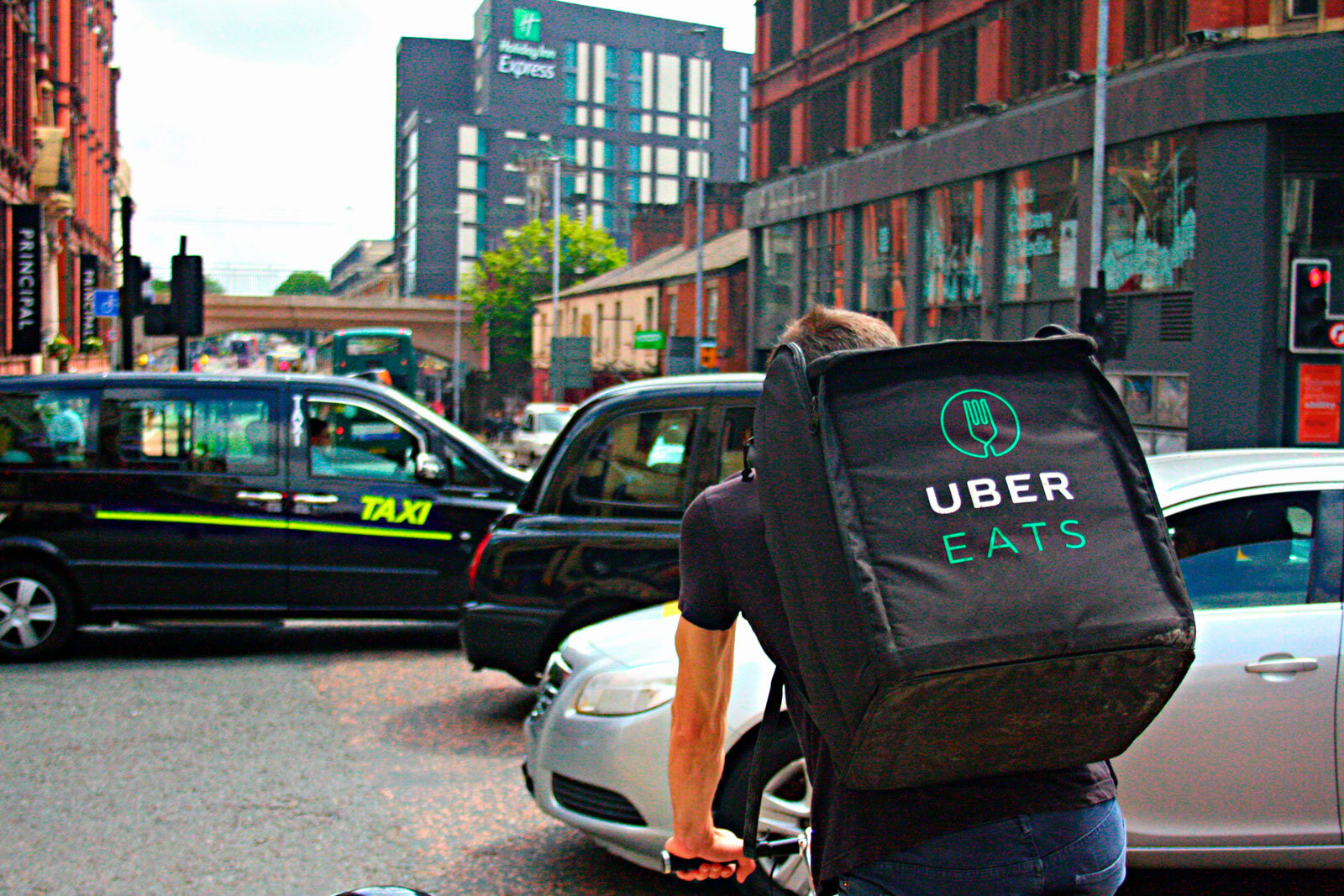How Grubhub, UberEats, and Minibar are Taking over Your Local Restaurant and Wine Store
Photo from shopblocks via Flickr
A frenzy of deal-making is remaking the food delivery app business. In January, UberEats acquired Ando, a food delivery startup founded by celebrity chef David Chang. In early March, Japanese conglomerate Softbank invested $535 million into DoorDash. A few weeks later, Grubhub expanded its partnership with the review site Yelp to facilitate ordering home delivery of restaurant meals. Meanwhile, the tech publication ReCode reported last week, DoorDash and Postmates have discussed merging.
Likewise, companies that operate similar services for the home delivery of alcohol, such as Minibar and Drizly, are growing swiftly in ways that are already reshaping the liquor industry.
Whether this will all prove to be good news for the consumer remains to be seen. But, a growing number of owners of independent restaurants and liquor stores believe that, left unchecked, the market power of these new platform apps threaten their ability to stay in business.
“These services are absolutely crushing … retail and the restaurant business,” says Seth Weiser, Chief Operating Officer at 67 Wines in New York City.
Grubhub, UberEats, and other such platforms all follow the same basic business model. Rather than dealing directly with traditional retailers, consumers use an app to find and order the products and services they want from different retailers. The owners of the app then take a cut of the money changing hands between the retailers and their customers. Sometimes, the owner of the app physically delivers the product to customers, and sometimes the retailers performs that function, but either way the owner of the platform app controls the marketplace where the exchange takes place and gets to keep all the information on who is buying what and when.
The apps claim that joining their networks can help some small businesses to find customers. “One year after joining Grubhub, restaurants grow monthly takeout revenue by an average of 30 percent,” says Grubhub, the largest of the food delivery apps.
But for small and independent businesses, clear downsides exist as well. Because the apps control the portal through which customers place orders, that means that it is the apps – not the businesses themselves – that control access to customers.
“Once somebody signs up on a Drizly or Minibar,” says Seth Weiser of 67 Wines, “Even if they’ve been a loyal customer for a long time, they become a customer of Drizly or Minibar.”
This makes small businesses dependent on the apps for access to their customers. Meanwhile, the platforms have the power to steer customers to one business over another. The apps also routinely charge businesses to be promoted within their systems. This gives bigger businesses an advantage over smaller ones in the online marketplace.
“These guys are taking the customers from the businesses, and then they can decide what they want to do with them, what they want to offer them,” says Dr. Roi Kliper, founder and CEO of City Hive, a company that helps alcohol businesses compete online.
Furthermore, by driving many businesses into a single online portal, the platforms can reduce competition and choice available to consumers. In alcohol, for example, a person who browses at a liquor store or supermarket can choose among as many different beers and wines as can fit on the shelves. But, on an app like Drizly, she will only see the products presented to her by the service. As Paul Pisano, Senior Vice President of the National Beer Wholesalers Association, puts it: “This is only six inches in my hand as opposed to 80 feet of shelf space.” The problem is made worse by the fact that the apps accept advertising from big brewers and distillers, in exchange for promoting their products over others.
Indeed, the new platform apps are disrupting markets that, after the repeal of prohibition in the 1930s, were carefully structured to avoid too much concentrated corporate power over trade in a substance – alcohol – that can pose severe threats to public health. For instance, to contain their market power, big brewers like AB-Inbev are barred by law from directly or indirectly paying a retailer to promote their products. But because the retailers are technically the ones actually making sales on the alcohol delivery apps, the apps do not count as a retailer within this carefully regulated system. Therefore, big producers can use apps like Minibar to do the kind of promotion they are barred from doing at bars and liquor stores.
This entire situation was aggravated by a recent rule change from Apple. Up until 2018 – when the new rule took effect – small businesses were free to use templates and third party app generators to create apps for the App Store. But now, Apple requires small businesses that use these templates and generators to open their own developer accounts and register their apps directly with Apple. That adds an additional burden to any small businesses seeking to create their own apps and drives small businesses to work with the big platforms instead.
As Roi Kliper puts it: “The problem is that apple is taking sides here, basically against independent business.”
Looming behind this changing market is Amazon. With its massive shipping and delivery infrastructure, coupled with its recent acquisition of Whole Foods, Amazon could quickly become the dominant player if it were to acquire one of the existing platforms or otherwise expand into the sector in a big way. As Leah Douglas reported for Food & Power in 2016, Amazon has already dipped its toe in the market for alcohol retail and delivery. The only question is if CEO Jeff Bezos decides to make this market his company’s next target.

